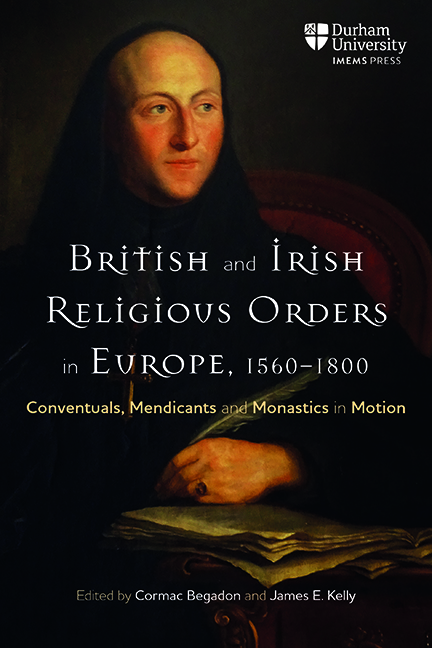 British and Irish Religious Orders in Europe, 1560-1800
British and Irish Religious Orders in Europe, 1560-1800 5 - ‘A mixt life’? English Benedictines and European Catholic Reform Movements: Monasticism and Apostolic Mission
Published online by Cambridge University Press: 07 October 2022
Summary
Scholars have paid little attention to the English Benedictine Augustine Baker's ‘Treatise of the English Mission’, largely because of the synopsis provided by Serenus Cressy in his Sancta Sophia, published within a decade of Baker's death. In the mere seven pages that summarise the unnamed Treatise, Cressy presents the text as a narrow polemic about the peculiarity of missionary monks, reducing it to a tirade against monks entering the Mission. From that, it is a short jump to the historian J. C. H. Aveling's bold claim that Baker ‘wanted to withdraw from the Mission’. I have argued elsewhere that such an interpretation completely decontextualises and bowdlerises Baker's Treatise, which was written in the 1630s. In reality, the Treatise was addressed to the whole English Mission, presenting a vision of how to implement the Catholic Reformation in England. It was a direct response to the fallout of the intra-Catholic debate known as the Approbation Affair. The text outlined a new approach to the spiritual formation of all would-be missionaries, regardless of whether they were monks or not. In this chapter, I wish to approach the Treatise from a different angle, and to highlight a strong influence running throughout the text that has been neglected by scholars who prioritise Baker's subsequent reputation as a great English mystic. This chapter focuses on the influence of one particular international Benedictine reform movement that shaped Baker's work: namely that of the Cassinese Congregation. It explores how this continental Benedictine reform movement shaped Baker's vision for the Catholic Reformation in England, to be carried out, in this particular reading, by monks. The Treatise's focus on the primacy of monastic observance, the fundamental importance of contemplation within the cloister, plus the dangers of the secular world and its distractions, was a contribution to ongoing reform movements within the Benedictine order. As such, on one level, the Treatise is Baker's entree into a debate within the Benedictine order on its role within the wider Catholic Reformation.
- Type
- Chapter
- Information
- British and Irish Religious Orders in Europe, 1560-1800Conventuals, Mendicants and Monastics in Motion, pp. 101 - 120Publisher: Boydell & BrewerPrint publication year: 2022


